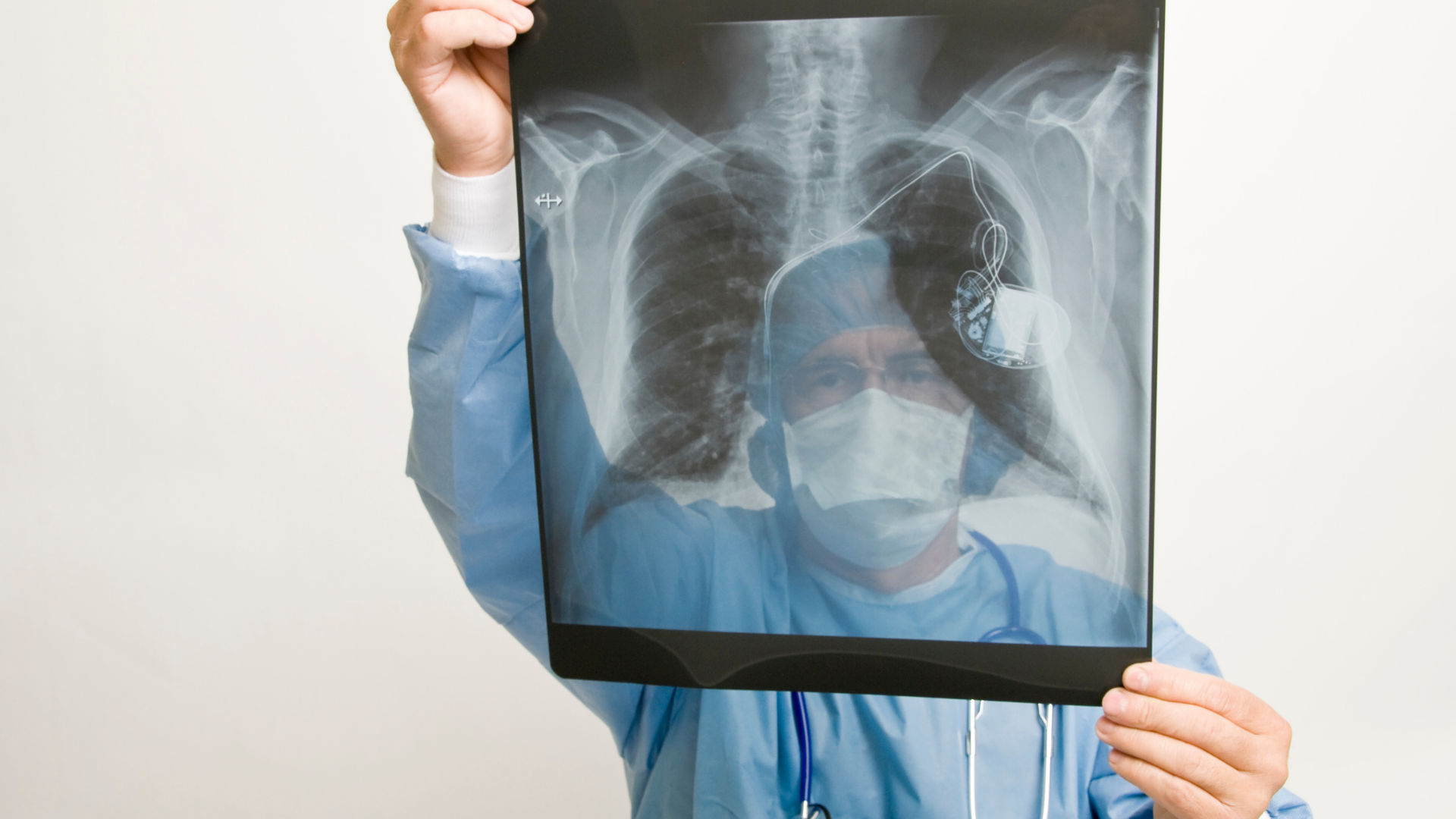Catastrophic Injuries: What Are They?
Jeffrey Breit—December 3, 2019

Injuries can be devastating, no matter the cause. When someone else’s negligence plays a role in causing you harm, there may be legal recourse available to you to seek compensation. However, in personal injury law, some injuries are considered “catastrophic” due to their severe nature.
Recognizing which injuries are catastrophic can help those who suffer harm know their rights to legal action. Catastrophic injuries include, but are not limited to, the following categories:
- Physical Injuries: These injuries are those that cause significant physical pain and suffering for the individual, and that are expected to have lasting, long-term effects.
- Spinal Cord Injuries: Any injury to the spinal cord has the potential to be catastrophic because of the impact it can have on the survivor’s mobility.
- Cognitive Injuries: Often hard to diagnose, these injuries can impact a person’s ability to speak, work, and remember things from the past.
The above injuries can have a significant effect on a person’s entire life. Thus, the law makes these some of the most highly compensated cases when you factor in the costs of living post-injury. Below, you’ll find these categories broken down even further to help you understand what options you have.
Which Physical Injuries Are Catastrophic?
Personal injury law looks at specific physical injuries based on the severity of the damage. Some of these injuries include the following:
- Burn injuries: Burns are some of the most severe a person can sustain due to the physical pain and the lifelong scars associated with these injuries. Burns vary in cause and severity, but they all have the potential to create significant damage.
- Amputations: Whether in a car accident or because of a significant infection, amputations can impair a person’s ability to walk or live life as they once did.
- Severe Fractures: Broken bones happen in several ways, but there are some acts of negligence that can cause severe fractures. These fractures may require multiple surgeries, long-term medical care, and medical equipment.
- Internal Organ Damage: In crashes and other negligence-related actions, individuals can suffer internal organ damage such as punctured lungs. Organ damage can also cause internal bleeding, which, if not treated promptly, can be fatal.
Physical injuries are some of the most severe because of the long-term pain they cause. Those who suffer harm can pursue compensation for the medical bills, physical therapy, and other long-term care they need.
What Are the Long-Term Problems With Spinal Cord Injuries?
Any injury involving the spinal cord is severe. The spinal cord is what helps the brain communicate with other parts of the body and impact mobility. When a spinal cord injury occurs, the individual may have his or her mobility compromised, as well.
These types of injuries result from various forms of negligence, including car accidents, acts of violence, slip and falls, and more. Medical professionals may grade the severity of the spinal cord injury based on the ASIA (American Spinal Injury Association) scale. This scale breaks down with letter grading:
- ASIA A: The injury is complete, and the individual no longer has sensory or motor function.
- ASIA B: The injury to the sensory function is incomplete, but the individual no longer has motor function.
- ASIA C: The injury to the motor function is incomplete, and there is some movement.
- ASIA D: The injury to the motor function is incomplete, and more than half of the muscle groups can move against up in a full range of motion.
- ASIA E: The individual is normal.
In most situations, the more severe the spinal cord injury is, the less likely it is that the individual will recover. They must go through life dealing with the immobility or damaged functions, requiring multiple surgeries and home care.
What Are Cognitive Injuries & How Are They Catastrophic?
Cognitive injuries are typically those that stem from significant brain injuries. From mild to severe, traumatic brain injuries can create substantial losses for the injured party, including memory loss, and problems involving speech and vision.
Traumatic brain injuries can include the following:
- Concussions are severe injuries that can cause loss of consciousness for a few seconds up to a few minutes. Concussions can also result in short-term memory loss and headaches.
- Moderate injuries may lead to more prolonged unconsciousness lasting several minutes. These brain injuries can cause dizziness, headaches, and slight cognitive issues.
- The most severe brain injuries can lead to long-term problems, including vision and speech problems, difficulty with occupational ability, and memory loss.
Cognitive injuries can impact a person’s entire life, including their livelihood and ability to earn an income. Whenever a person’s work relies on them to use cognitive abilities, a brain injury that causes cognitive impairments can result in loss of income to go along with medical bills.
What Rights Do Survivors & Families Have?
Catastrophic injuries create a significant number of potential obstacles for a survivor and his or her family. There are many things to consider when you think of legal action you can pursue and the compensation you may seek. However, because some catastrophic injuries involve brain damage, legal action may involve the family of the survivor.
The survivor may seek compensation for his or her injuries. Alternatively, his or her family can take legal action when the survivor is mentally and physically unable to make decisions on his or her own. As such, it’s important to pursue justice and compensation for the long-term expenses associated with these types of injuries.
- Medical Expenses: Any catastrophic injury will require life-long care, multiple procedures, medical visits, prescription medication, and more. The costs can be expensive, and nobody expects them. Pursuing compensation helps to cover the bills.
- Lost Income: A person who suffers a catastrophic injury may be unable to work as he or she once did. As a result, they lose the income that would typically go to help his or her family with rent, food, car payments, and other monthly utilities. Without this income, it can seem impossible to survive.
- Medical Equipment: Those people who suffer catastrophic injuries may require the use of specialized medical equipment to get around, drive, get up and down steps, and more. This equipment can be costly, and getting compensation can help to reduce the amount of money needed to cover this cost.
- Pain & Suffering: Like many personal injury cases, catastrophic injury lawsuits consider the injured party’s pain and suffering. These damages are non-economical. It’s up to the jury to determine the exact amount owed to the survivor for the physical damage sustained. This compensation also includes the mental anguish he or she must endure as a result.
At Breit Biniazan, we take catastrophic injury matters seriously because we know how much survivors need strong legal representation. We make it a priority to provide our clients with the tenacious advocacy to hold negligent parties accountable for their actions. We’ll pursue compensation to cover the expenses associated with the injuries and help survivors get their lives back on track.
Our Virginia Beach, Richmond, and Portsmouth personal injury attorneys focus on helping you with preparation, experience, and knowledge of the law and your situation. We’ll be your guide throughout the entire process, helping you understand what comes next, and how you can protect your rights moving forward.
By Jeffrey Breit
Partner
Jeffrey Breit is driven to be the best in personal injury legal representation and has had far-reaching accomplishments that will be felt for years to come. Throughout a successful career as a personal injury lawyer in Virginia Beach and the larger state of Virginia, Jeffrey Breit has continued to work hard to improve the reputation of attorneys representing injured people, as well as training the next generation of trial lawyers.
Categories:
Office Locations
Related Posts
Categories
We are personal injury attorneys
Fill out our contact form to speak to our experienced Virginia trial attorneys. Breit Biniazan has helped recover millions of dollars in cases. Learn how we can help you today.
